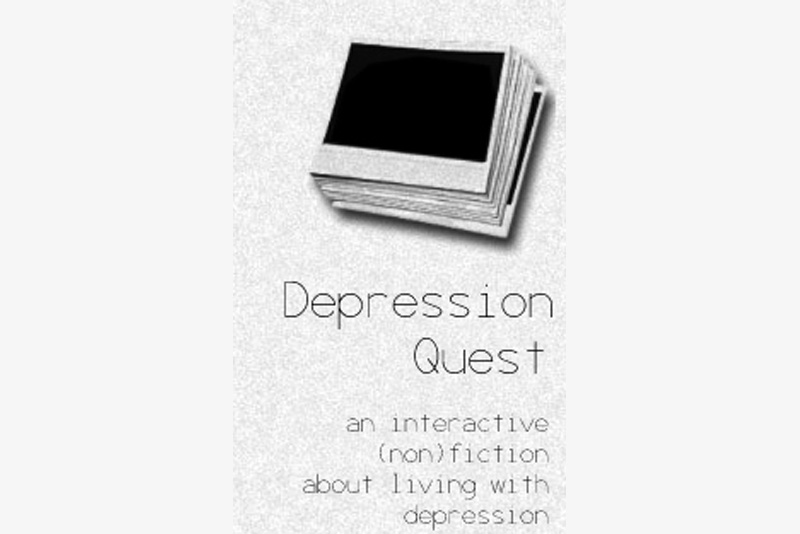E.Y.E. : Divine Cybermancy

Produced by a 10-man team of French developers, "E.Y.E.: Divine Cybermancy" has some neat ideas, but an overall questionable execution.
E.Y.E. is a first-person shooter that takes place in a cyberpunk-inspired world of augmentation technology and psychic powers. It's a combination of tactical gunplay and high-powered sci-fi, and thus a neat part about the game is the transition from being relatively normal and low-powered to being a nigh-invulnerable superman who can take on armies. However, the obtuse, unintuitive story and concepts might turn off many players before they ever reach the latter part.
E.Y.E. makes use of both RPG mechanics and basic FPS gameplay. The shooting aspect of the game resembles something like Rainbow Six, albeit less lethal; using cover and leaning out to shoot are vital techniques, and the selection of guns includes the standard set of pistols, shotguns, and rifles. Shooting is quick and responsive, and despite some lackluster effects the game does an okay job of portraying firefights.
The inventory system is kind of neat; instead of having 2 slots for weapons or something along those lines, it uses a grid-based inventory system (much like the one in the Diablo games). However, the grids are located on different parts of the body; a large weapon like a rifle can only fit on the character's back, but smaller weapons, ammunition, and grenades can be stored on hip slots, thigh slots, and other small pouches.
The RPG aspect of the game comes into play through the use of "brouzofs", which act as a combination between experience points and currency. The level-up system is fairly straightforward; you kill enemies and complete objectives, and you get points to put into your different stats. The "currency" aspect is a bit more complicated. As currency, brouzofs can be spent on research, augmentations, psychic powers, and weapon upgrades. These all have fairly interesting effects on gameplay.
Cyber-augmentations improve the character's body, making them faster, stronger, more durable, and so on. A highly augmented character is, in general, simply better than other characters, meaning they can be more aggressive and straightforward when it comes to fights, and the game does a good job of making the player feel powerful when they're fully augmented. In contrast, PSI powers are more about finding useful tricks. The PSI powers available in the game include generating clones, disorienting and confusing enemies, killing enemies and creating monsters from their corpses, and converting fallen weapons and items into energy. This supports a more strategic form of gameplay based on using the powers in tandem.
While the mechanics of gameplay are pretty good, the game's pacing could use work. The game opens with an awkward semi-amnesiac tutorial (you're in a cave and can't remember how you got there) and then immediately dumps you into the middle of the game's complex world. You don't have a lot of time to get up to speed with who's fighting who and why before you're shunted off to different missions. You start with a bunch of guns unlocked and you're already "superhuman" at the start of the game (although you get considerably moreso), so there's not really as much of a sense of advancement as there could be. In addition, there's a lot of arcane terms that the game throws at you as soon as you start, and without much explanation as to what they are or why they're being used. This makes the game intimidating for someone who's picked it up casually, or someone who didn't look up beforehand what the heck is going on.
The designs and graphics of the game are very well done, although some of the aesthetic decisions might be considered a little questionable (the guns in particular don't share any real similarities, and just look like they were haphazardly thrown into the game). The sound effects and voice acting (an intentionally garbled nonsense language) aren't great, but the music is pretty good, and it's all reasonably atmospheric. There's cooperative multiplayer, but attempting to play the game with co-op was bogged down by bugs and network issues. It's fun conceptually, but the technical side doesn't hold up well.
The most important thing I'd say about E.Y.E. is that it's a good game if you overlook a lot of its flaws and allow yourself to get invested in it. It's not the best game, and it's definitely got a lot of holes when it comes to content design, but it can be pretty fun, too.
Rating: 6/10.
Purchased with our own funds through Steam.
E.Y.E. is a first-person shooter that takes place in a cyberpunk-inspired world of augmentation technology and psychic powers. It's a combination of tactical gunplay and high-powered sci-fi, and thus a neat part about the game is the transition from being relatively normal and low-powered to being a nigh-invulnerable superman who can take on armies. However, the obtuse, unintuitive story and concepts might turn off many players before they ever reach the latter part.
E.Y.E. makes use of both RPG mechanics and basic FPS gameplay. The shooting aspect of the game resembles something like Rainbow Six, albeit less lethal; using cover and leaning out to shoot are vital techniques, and the selection of guns includes the standard set of pistols, shotguns, and rifles. Shooting is quick and responsive, and despite some lackluster effects the game does an okay job of portraying firefights.
The inventory system is kind of neat; instead of having 2 slots for weapons or something along those lines, it uses a grid-based inventory system (much like the one in the Diablo games). However, the grids are located on different parts of the body; a large weapon like a rifle can only fit on the character's back, but smaller weapons, ammunition, and grenades can be stored on hip slots, thigh slots, and other small pouches.
The RPG aspect of the game comes into play through the use of "brouzofs", which act as a combination between experience points and currency. The level-up system is fairly straightforward; you kill enemies and complete objectives, and you get points to put into your different stats. The "currency" aspect is a bit more complicated. As currency, brouzofs can be spent on research, augmentations, psychic powers, and weapon upgrades. These all have fairly interesting effects on gameplay.
Cyber-augmentations improve the character's body, making them faster, stronger, more durable, and so on. A highly augmented character is, in general, simply better than other characters, meaning they can be more aggressive and straightforward when it comes to fights, and the game does a good job of making the player feel powerful when they're fully augmented. In contrast, PSI powers are more about finding useful tricks. The PSI powers available in the game include generating clones, disorienting and confusing enemies, killing enemies and creating monsters from their corpses, and converting fallen weapons and items into energy. This supports a more strategic form of gameplay based on using the powers in tandem.
While the mechanics of gameplay are pretty good, the game's pacing could use work. The game opens with an awkward semi-amnesiac tutorial (you're in a cave and can't remember how you got there) and then immediately dumps you into the middle of the game's complex world. You don't have a lot of time to get up to speed with who's fighting who and why before you're shunted off to different missions. You start with a bunch of guns unlocked and you're already "superhuman" at the start of the game (although you get considerably moreso), so there's not really as much of a sense of advancement as there could be. In addition, there's a lot of arcane terms that the game throws at you as soon as you start, and without much explanation as to what they are or why they're being used. This makes the game intimidating for someone who's picked it up casually, or someone who didn't look up beforehand what the heck is going on.
The designs and graphics of the game are very well done, although some of the aesthetic decisions might be considered a little questionable (the guns in particular don't share any real similarities, and just look like they were haphazardly thrown into the game). The sound effects and voice acting (an intentionally garbled nonsense language) aren't great, but the music is pretty good, and it's all reasonably atmospheric. There's cooperative multiplayer, but attempting to play the game with co-op was bogged down by bugs and network issues. It's fun conceptually, but the technical side doesn't hold up well.
The most important thing I'd say about E.Y.E. is that it's a good game if you overlook a lot of its flaws and allow yourself to get invested in it. It's not the best game, and it's definitely got a lot of holes when it comes to content design, but it can be pretty fun, too.
Rating: 6/10.
Purchased with our own funds through Steam.

Related Articles
Editor's Picks Articles
Top Ten Articles
Previous Features
Site Map
Follow @lisavideogames
Tweet
Content copyright © 2023 by James Shea. All rights reserved.
This content was written by James Shea. If you wish to use this content in any manner, you need written permission. Contact Lisa Shea for details.



